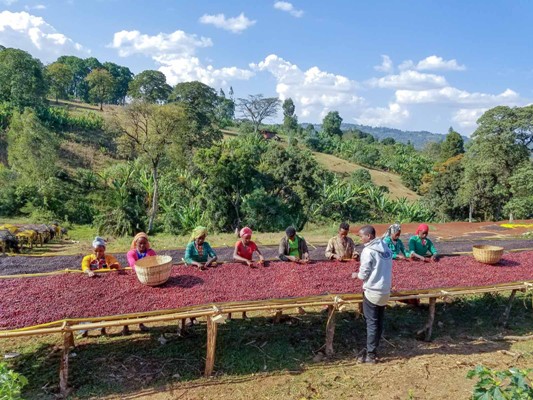Ethiopia, Africa’s largest coffee grower, could face “significant volatility” in the crop’s yields in a decade due to changing weather patterns, according to McKinsey & Co.
A drop in coffee yields in the magnitude of 25% will become more likely by 2030 as temperatures increase and rainfall decreases during the crop’s flowering, Mckinsey said in a report on Monday.
“Our analysis predicts that future shifts in precipitation will significantly increase the chance that Ethiopia’s coffee farmers experience poor yields in any given season,” the consultancy said.
McKinsey highlights climate change as a major challenge Africa faces in improving farming, and warns that “higher volatility in the yields of major African food crops results in higher price volatility.” The study projects yields — focusing on coffee and wheat in Ethiopia, and corn and cotton in Mozambique — in the face of climate change.
“African countries are already working to counteract this volatility,” according to McKinsey. “Better and more localized planning and financial mobilization will be key.”
Sub-Saharan Africa needs as much as $65 billion for irrigation to fulfill its farming potential, of which $3 billion will be required in Mozambique and $2.3 billion in Ethiopia. McKinsey further estimates an $8 billion investment gap for storage.
Output of wheat, a staple in Ethiopia, won’t be as volatile as the nation’s coffee production, according to the report.
McKinsey projects corn production in Mozambique will be very volatile with changes in yields of between 20% and 30% by 2030. Corn is grown by most rural homes in southeast African country. Cotton output in will be more stable as hotter temperatures, good for the crop, become common, according to the study.
-Bloomberg






The observation I made is that the author fails to add Uganda amongst the coffee producing countries, yet it second to Ethiopia.
Such data are important to highlight the gaps and risks associated with climate change towards coffee production in Africa